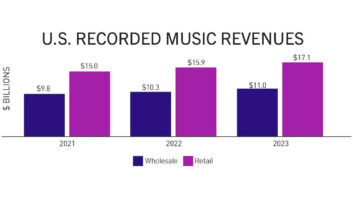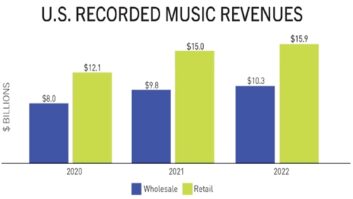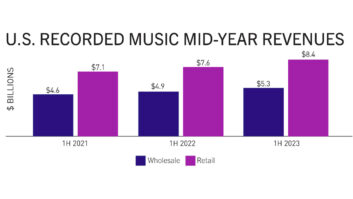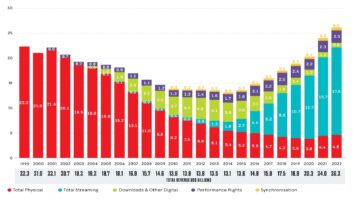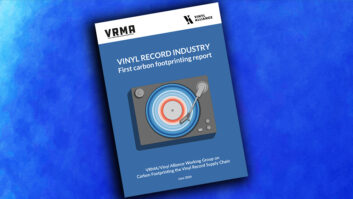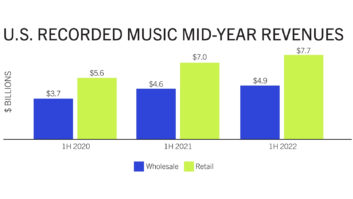Washington, D.C. (August 29, 2024)—Steady streaming and vinyl numbers are behind the RIAA’s mid-year report that recorded music revenues totaled $8.7 billion in the first six months of this year, reflecting 4% growth—less than half of last year’s first-half record 9.3% increase.
Streaming, entering its third decade in the U.S., held steady to contribute 84% of total revenues for the fifth consecutive year but the rate of growth does appear to be slowing. Revenues from streaming services overall grew 4% (compared to 10.3% in H1 2023) at retail value to a record high $7.3 billion. Total U.S. recorded music revenues are now in the ninth straight year of growth.
Paid subscription service revenues accounted for 78% of all streaming revenues, growing 4% (compared to 11% in H1 2023) to $5.7 billion or nearly two-thirds of the mid-year total. The average number of subscriptions has grown 3% to a high of 99 million, compared to 96.5 million in 2023.
Advertising supported on-demand services like YouTube, the ad-supported version of Spotify, Facebook and others grew slower than in recent years, up just 2% to $899 million, contributing only 10% of total H1 2024 recorded music revenues.
According to the report, total physical revenues of $994 million were up 13% over the prior year.
Matt Bass, RIAA VP, Research, Gold & Platinum Operations, in a post on Medium timed to coincide with the new report, noted: “Vinyl records alone grew 17% this period and are currently on pace to again break the billion-dollar barrier by year’s end.”
Vinyl accounted for three-quarters of physical format revenues and outsold CDs in units (24 million vs 17 million) for the fourth consecutive year. Revenues from CDs were relatively flat at $237 million in 2024.
Digital downloads continued their 14-year downward trajectory, contributing only 2% of all recorded music revenues in the U.S. for the period.
In his post, Bass also noted the music community’s collaboration on the Human Artistry Campaign, working to establish ground rules for the use of AI “that promote responsible innovation, boost the creative economy and shape the culture in pro-human, pro-artist ways.”
He also references the RIAA’s current two legal cases against venture capital funded AI music generation tools that benefited from the use of “huge volumes of copyrighted music to train their models without obtaining consent.”

